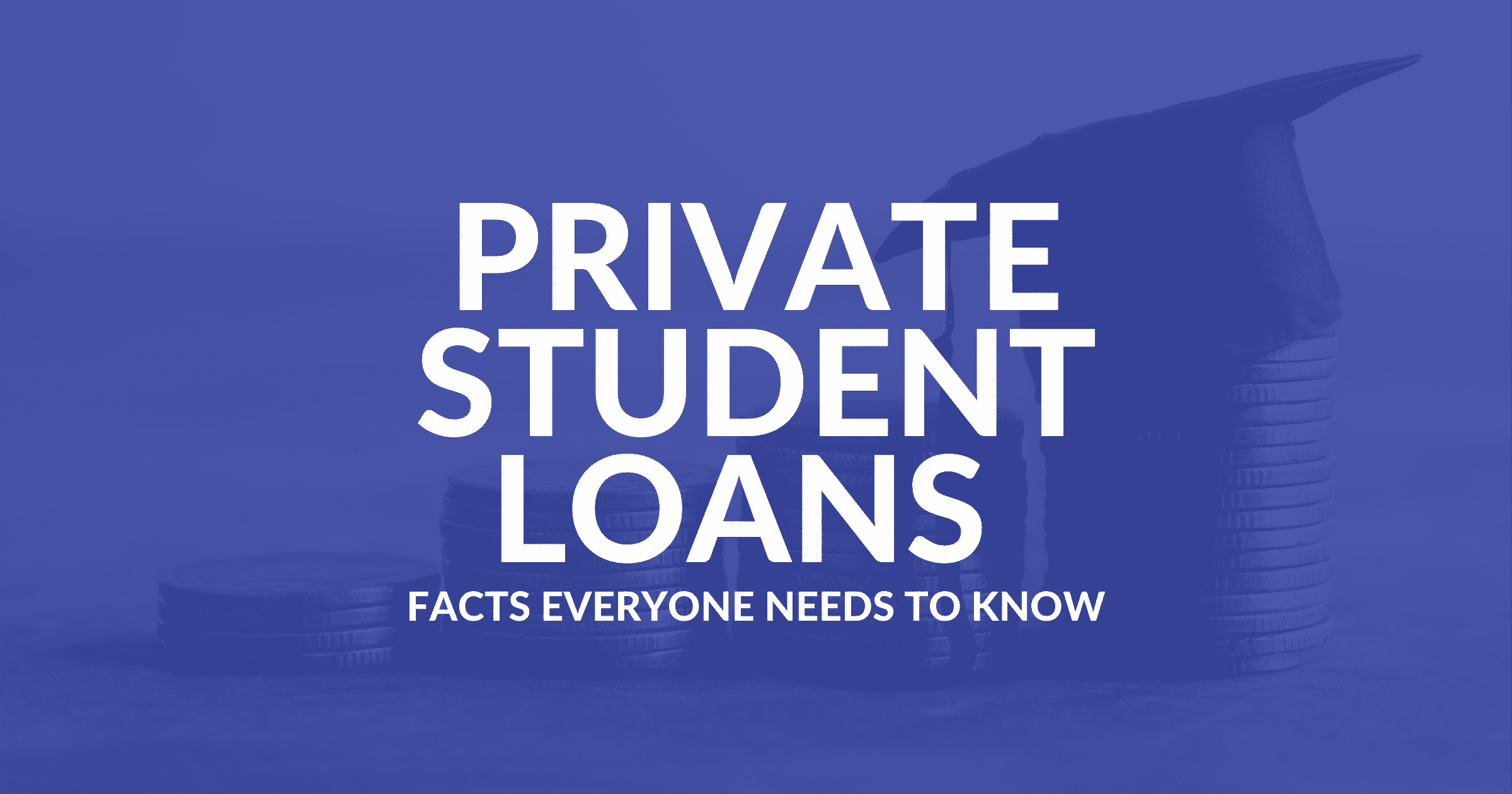

What is Private Education Loans?
A private education loan is a financing option for higher education in the United States that can supplement, but should not replace, federal loans, such as Stafford loans, Perkins loans and PLUS loans. Private loans, which are heavily advertised, do not have the forbearance and deferral options available with federal loans (which are never advertised). In contrast with federal subsidized loans, interest accrues while the student is in college, even if repayment does not begin until after graduation. While unsubsidized federal loans do have interest charges while the student is studying, private student loan rates are usually higher, sometimes much higher. Fees vary greatly, and legal cases have reported collection charges reaching 50% of amount of the loan. Since 2011, most private student loans are offered with zero fees, effectively rolling the fees into the interest rates.
When you think of financial aid, the first thing that comes to mind is student loans. After all, most students are aware of them and know they’re a great way to fund college expenses. What you might not know is there are other types of financial aid available such as private education loans.
These non-governmental loans are offered by private lenders such as banks and credit unions, and they have unique eligibility requirements. For example, many require an excellent credit score, high income, or collateral before granting a loan. This article covers whether or not they’re worth it for you.
Pros of Private Education Loans
You can use them for more than just tuition: Unlike government-backed student loans that only cover tuition, books, and tuition, private education loans can be used for several educational expenses. This can make them a more attractive option for many students.
Lower credit score requirements: One of the main pros of private education loans is that some don’t require a credit check. If you are applying for a federal loan, you will need a good credit score to qualify because they use it to determine your interest rate. Private education loans don’t have these same requirements, which means anyone can potentially qualify for one. Higher loan amounts: Though the details vary, some private education lenders offer larger loans than the government. This can help you cover more expenses, such as a larger tuition bill or living expenses. You should also note that larger loan amounts come with higher interest rates.
Cons of Private Education Loans
Higher interest rates: While larger loan amounts are helpful, they also come with higher interest rates. This means you will ultimately pay more over time, which makes the loan even less worth it.
Higher origination fees: While you can get a larger loan amount with a private education loan, you may also have to pay a higher origination fee upfront. This is the lender’s fee for making the loan, and it’s usually paid at the time of the loan.
Collateral requirements: Private education loans often require collateral, such as a car or home, before they give you the money. If you don’t pay the loan back, they can take the collateral to make up for it.
So Are They Worth It?
Ultimately, the answer to this question will depend on your situation. A federal loan may be a better fit if you have a good credit score and can qualify for a low-interest rate. You will get a lower rate and can apply for the loan even if you have poor credit. But if you don’t qualify for a federal loan or have a low credit score, then the best private student loans may be a good option. You can reach out to places like Ascent Funding if you’re looking for student loans.
Even if you do have a good score, you may need a larger loan amount. There’s no right answer for everyone, but you should consider all options before deciding. These loans have downsides, but they may be a good choice for some people. Before applying for one, it’s essential to understand how much it will cost you in the long run to make an informed decision.
A private education loan is a popular option for college students who don’t qualify for federal loans. But they come with some disadvantages, such as high-interest rates, limited repayment options, and the fact that you may need to pay back more than the amount you borrow. If you decide to take out a private loan, make sure you understand all of your options before making any decisions.
Leave a Reply